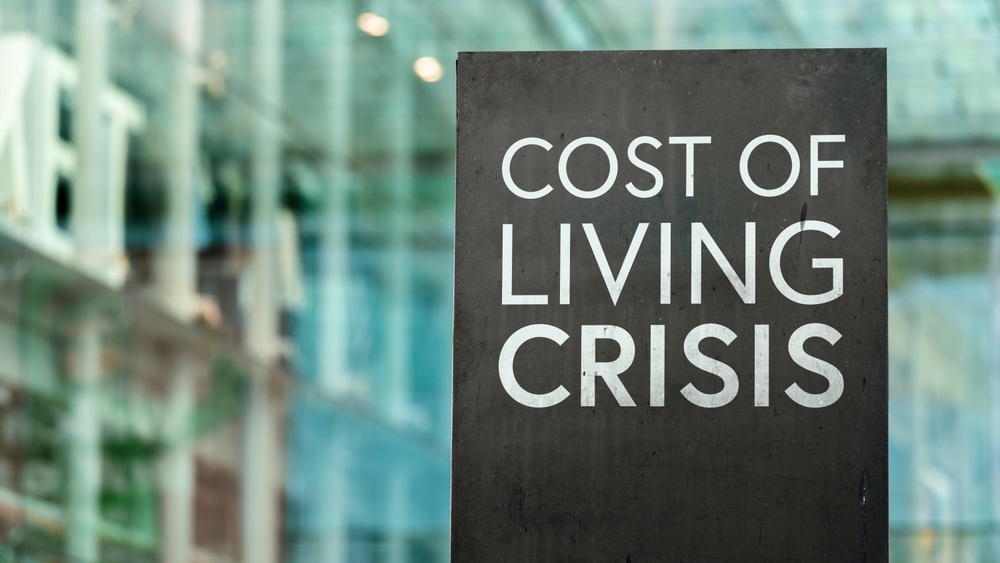Can You Reprogram Your Reaction To Stress?

For years, we’ve been led to believe that stress is the enemy.
Not only does excessive stress equal mental pain, but it can also affect our physiology—and lead to grey hairs, sleep problems, sore muscles, headaches and high blood pressure, for example.
Individual pressures in our own lives notwithstanding, a global pandemic, a cost-of-living crisis, and a looming recession are only adding to most people’s stress levels. In a poll from the American Psychological Association, 87% of those surveyed said that ‘the rising costs of everyday items, such as groceries and gas, were a significant source of stress’.
If external or perceived stress persists for a long time and becomes deeply rooted in our mental psyche, we may develop feelings of anxiety or depression. This could lead to further physical side effects and life-threatening diseases like diabetes, heart disease, and dementia.

We don’t actually die from stress
However, we do die from the way we think about stress.
This theory was tested in the University of Wisconsin’s study (Keller, Lotzelman, Wisk et al 2012), where a sample of U.S. adults were asked how much stress they had experienced in the last year and whether they believed stress was harmful to their health.
Public health records showed that the participants who said they had experienced a lot of stress in the previous year—and who believed stress was harmful to their health—carried a 43% increased risk of dying.
In comparison, researchers found that the people who admitted to experiencing a lot of stress, but who didn’t perceive stress as harmful, had the lowest risk of premature death of all the participant groups in the study—their risk statistics were even lower than those who claimed they didn’t experience much stress as all.
We all get stressed from time to time—we’re human, and we can’t help it. Trying to juggle work and home life can be difficult. Any added strain could prove the straw that breaks the camel’s back, such as your boiler breaking when you’re trying to save for Christmas.
Stress is a fact of life. What if we could learn to use stress in our favour?
Stress can genuinely be a good thing, in small doses. For example, stress can motivate us to meet deadlines; stress sends vital energy and nutrients to our muscles to allow us to escape from threats; stress can help us value and appreciate our loved ones.
When stress isn’t perceived as a negative, overcoming a difficult situation fills you with pride, courage and determination. In a challenging situation, people might feel their heart racing, their breathing rate increasing, and their palms begin to sweat. Many might associate these physical signs as symptoms of anxiety; however, from a different mindset, they could all be signs of excitement, anticipation, and adrenaline. They demonstrate that your body is helping you rise to the challenge you’re facing. Pressure, and by extension, stress, helps you focus on what’s most important.
We may have physically evolved from our time as apes; however, our minds are not actually hardwired to keep us happy—they’re programmed to keep us alive.
So, when all our basic needs have been met—i.e. we have food on our plates, a roof over our head and clothes on our back—our minds need something else to strive towards…another problem to solve. This is when we start to worry about the negative outcomes of possible future events, or we look back on unsavoury experiences from our past. Because we don’t have to worry about where our next meal is coming from, or that a sabre-toothed tiger may kill us in our sleep, our minds create problems to solve.
To change our mindset, it’s important that we draw on our personal strengths. Having a high level of self-awareness is important in the quest to eliminate stress. If we can identify our strengths and weaknesses, we can use our skillset to rise to any challenge that awaits us.
The majority of human suffering is caused by thought. You are what you think, but that’s something you’re able to change, by learning how to retune your inner voice.
For instance, if a new task gets thrust upon you at work, instead of seeing it as an anxiety-inducing chore, you’d think of it as an exciting opportunity—something different. If the dreaded imposter syndrome reared its ugly head, you could reassure yourself that you must be more than capable of completing the said task to a high standard, or others wouldn’t expect this of you.

Changing your mind about stress
Changing your mind about stress changes the way your body responds to it. You begin to recognise that your racing heart and sweaty palms are indicators of adrenaline, which is working to put you in the best position you can be to conquer the task and achieve the seemingly impossible.
To avoid the harmful consequences of stress, we need to uncover what causes it. In a challenging situation, we need to ask ourselves what is at risk, and why it matters. We need to understand the difference between rational stress, such as a fire in your house or a broken-down car, against perceived worry, like imposter syndrome, thinking that you’re not good enough at your job, worrying that you might be let go at work and how you’d pay the bills, etc.
The Jigsaw Discovery Tool is committed to supporting learners to achieve their potential and giving them a voice in the workplace. Its stress and resilience modules help people change the way they think about arguably stressful situations. Think More to Stress Less helps to develop people’s coping mechanisms. Knowing that you have the resources to deal with any challenges life may throw your way helps you to recognise that stress isn’t harmful to your health. Stress is a motivator that helps you prepare for everything that lies ahead. It’s only harmful to your mental well-being and your physical health if you allow it to be.
Contact us now to discover how to Think More to Stress Less
For more information about the Jigsaw Discovery Managing Your Stress Learning modules and how they could help you as an individual or your team at work, contact us on 01924 898930 or email hello@jigsawdiscoverytool.com




